Opus vs. FLAC: A Detailed Comparison of Audio Quality & Performance
You have to choose the right audio format because it affects sound quality, file size and ease of operation on different devices. The two famous formats such as Opus and FLAC, work for different purposes. Opus is a very efficient format and offers excellent quality even at low bit rates by making it ideal for streaming, online calls and games. FLAC is a format that keeps original sound quality and it is ideal for the protection of high-quality music and professional recordings. In this tutorial, we will discuss about Opus vs FLAC so that you can choose the best option according to your needs.
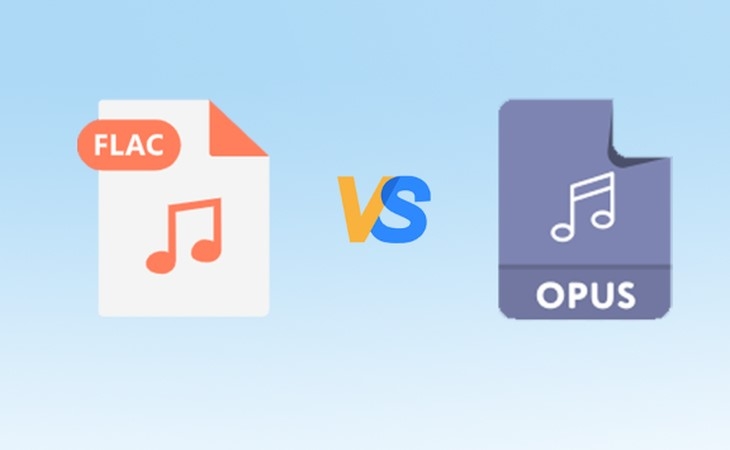
Part 1: What is Opus?
Opus is a modern audio tool which offers high efficiency and flexibility. This open-source format developed by the Xiph.Org Foundation which is designed to attain excellent sound quality while keeping file size small. Opus is mostly used in VoIP (voice over IP) calls, video conferencing, and online streaming. Opus performs well even at low bit rates and makes it ideal for applications with limited formats.
Key Features of Opus
- High compression efficiency: Opus efficiently compresses audio files while maintaining sound quality. This makes it ideal for streaming and online communication.
- Low latency: Quickly process audio and reduce voice and video call delays. Therefore, it is often used in games and live broadcasts.
- Versatile bitrate range: Opus supports a wide range of bitrates from 6kbps to 510kbps. This flexibility allows it to be used for various applications.
- Streaming friendly: Opus is optimized for online platforms like YouTube and Discord. In other words, it is compatible with streaming services and web-based applications.
- Open Source: Opus is free and supported by many platforms. Developers can use and improve Opus without paying a license fee.
Part 2: What is FLAC?
FLAC is a common audio format that reduces file size while keeping original sound quality. It uses lossless compression, so no audio data is lost during processing. That is why FLAC is the best choice for music lovers who are looking for inflexible high sound quality. Audio fans and experts prefer to use FLACs that can store the details of their original recordings for music storage and archiving.
Key Features of FLAC
- Lossless compression: FLAC reduces file size without compromising sound quality. This makes it ideal for archiving high-quality music collections.
- High sound quality: lossless, so FLAC keeps all the details of the original recording. It is mostly used by audio followers and specialists.
- Metadata support: FLAC files can store important details such as album art, song name, artist name, etc. This helps them to establish music collections.
- Wide device compatibility: Many media players and devices support FLAC. Works with Windows, Mac, Linux, and portable audio players.
- Open Source: Like Opus, FLAC is free and widely supported. Anyone can use and change without limitation.
Part 3: Key Differences Between Opus and FLAC
Opus vs FLAC provide excellent sound quality, but their needs are limited. Opus is adjusted for streaming, voice calls, and online applications due to its small file size and low latency. On the other hand, FLAC is a format that maintains the original sound quality and is ideal for music storage and business use. You can choose the best format for your needs by understanding each difference. Here is a detailed comparison of the main features of each:
| Feature | Opus | FLAC |
|---|---|---|
| Compression | Lossy (high efficiency) | Lossless (no quality loss) |
| Audio Quality | Great at low bitrates | Original sound quality |
| File Size | Smaller | Larger |
| Use Case | Streaming, VoIP, online applications | Music storage, professional use |
| Bitrate Range | 6 kbps - 510 kbps | 400 kbps - 1411 kbps |
| Latency | Low (real-time use) | Higher (not ideal for real-time) |
| Compatibility | Web apps, VoIP, video streaming | High-end audio players, archives |
| Metadata Support | Limited | Full support |
| License | Open-source | Open-source |
Which One Should You Choose?
If you choose Opus vs FLAC, it depends on your needs. If the file size is small and you want the sound quality suitable for streaming and calling, Opus is better. If you prefer lossless sound in music storage or professional use, FLAC is recommended. By understanding each difference, you can make the right choice.
- Choose Opus if you need efficient compression, low latency, excellent quality for streaming and calling.
- Choose FLAC for music collections, professional recordings and archives.
Bonus Tip: Convert Your Audio Files Easily with HitPaw Univd
If you want to convert audio files like Opus or FLAC, HitPaw Univd is an easy and reliable tool. You can quickly change the audio format without losing quality. Whether you need better compatibility or want to save storage space, this tool makes the process easier. Supports many formats and works fast. In addition, batch conversion saves time and effort by converting multiple files at once.
Key Features of HitPaw Univd
- Easily upgrade video quality to 4K with a single click.
- Edit videos without losing quality cut, merge, and crop seamlessly.
- Compress videos and photos to various sizes while maintaining high quality.
- Smart AI tools built-in to quickly enhance your creativity.
- 120X AI Video Converter for Videos, Music, and Images
Simple Guide to use HitPaw Univd
Step 1: Open HitPaw Video Converter and add your videos via “Add Video” or drag them in.
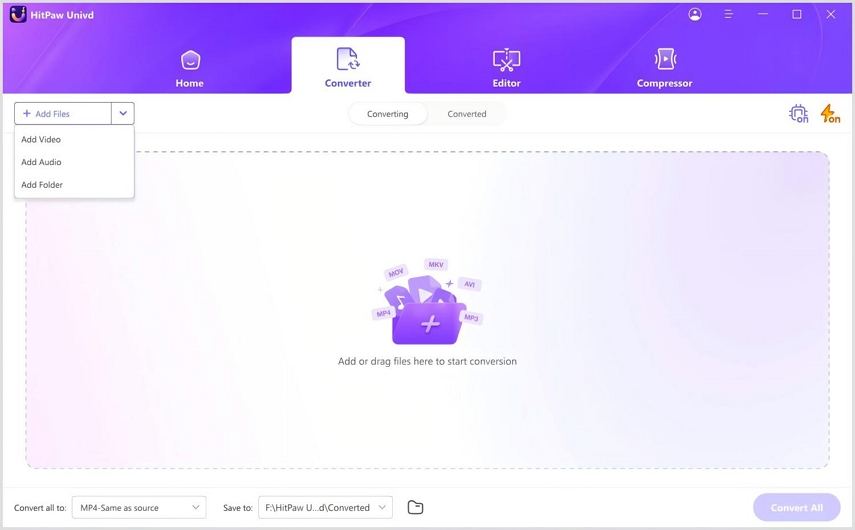
Step 2: Edit the video title by clicking on the file name directly.
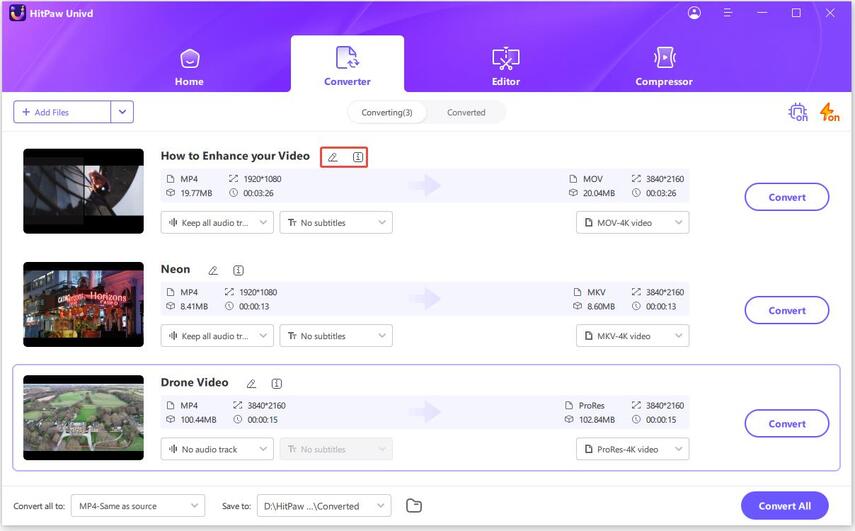
Step 3: Click the dropdown icon to choose an output format for your video.
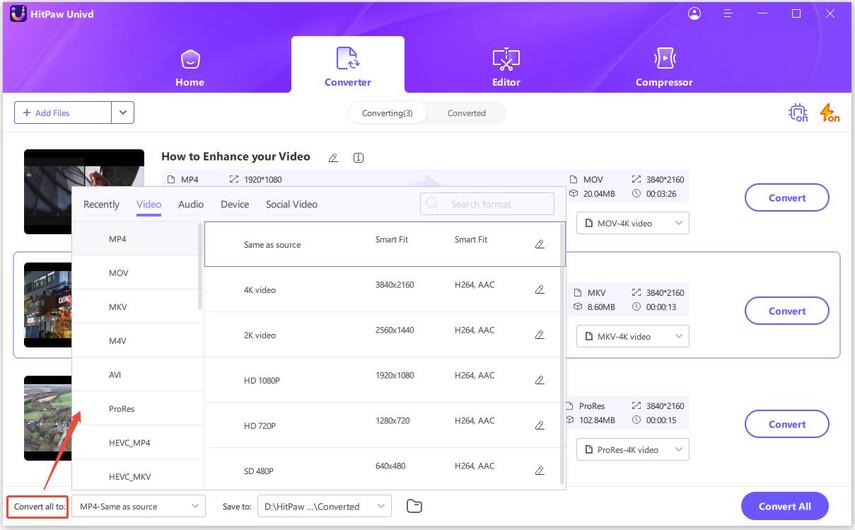
Step 4: Set your output folder, then click “Convert” or “Convert All” to finish the job.
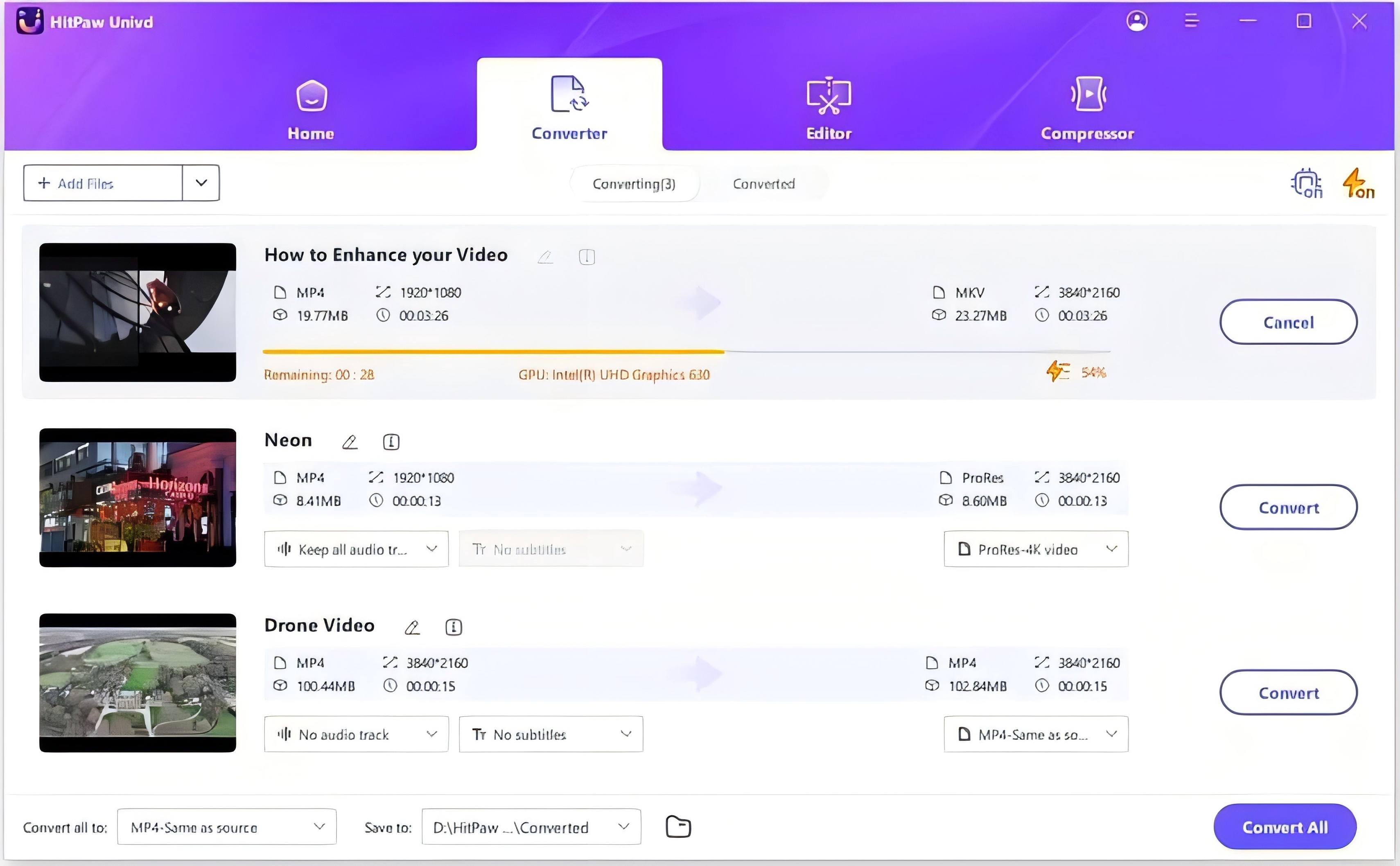
Conclusion
Opus vs FLAC are excellent audio formats, but the reasons used are different. Opus is ideal for streaming and online calls and it keeps small files because it maintains good quality of sound. FLAC is perfect for music lovers who want the best quality of sound without losing detail. HitPaw Univd is a fast and reliable tool to make conversion between Opus, FLAC and other formats. Make swapping formats easier and get the best listening experience. By choosing the correct format can make a big difference if you stream audio or save music.








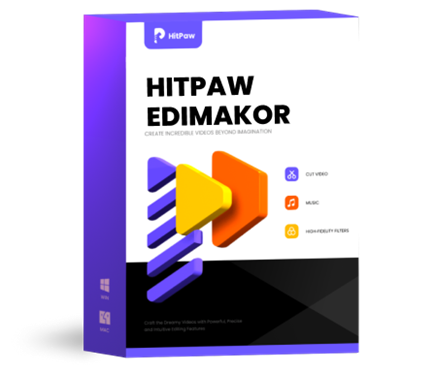 HitPaw Edimakor
HitPaw Edimakor HitPaw VikPea (Video Enhancer)
HitPaw VikPea (Video Enhancer)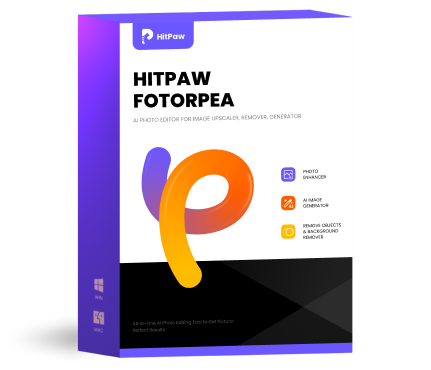 HitPaw FotorPea
HitPaw FotorPea



Share this article:
Select the product rating:
Daniel Walker
Editor-in-Chief
This post was written by Editor Daniel Walker whose passion lies in bridging the gap between cutting-edge technology and everyday creativity. The content he created inspires the audience to embrace digital tools confidently.
View all ArticlesLeave a Comment
Create your review for HitPaw articles